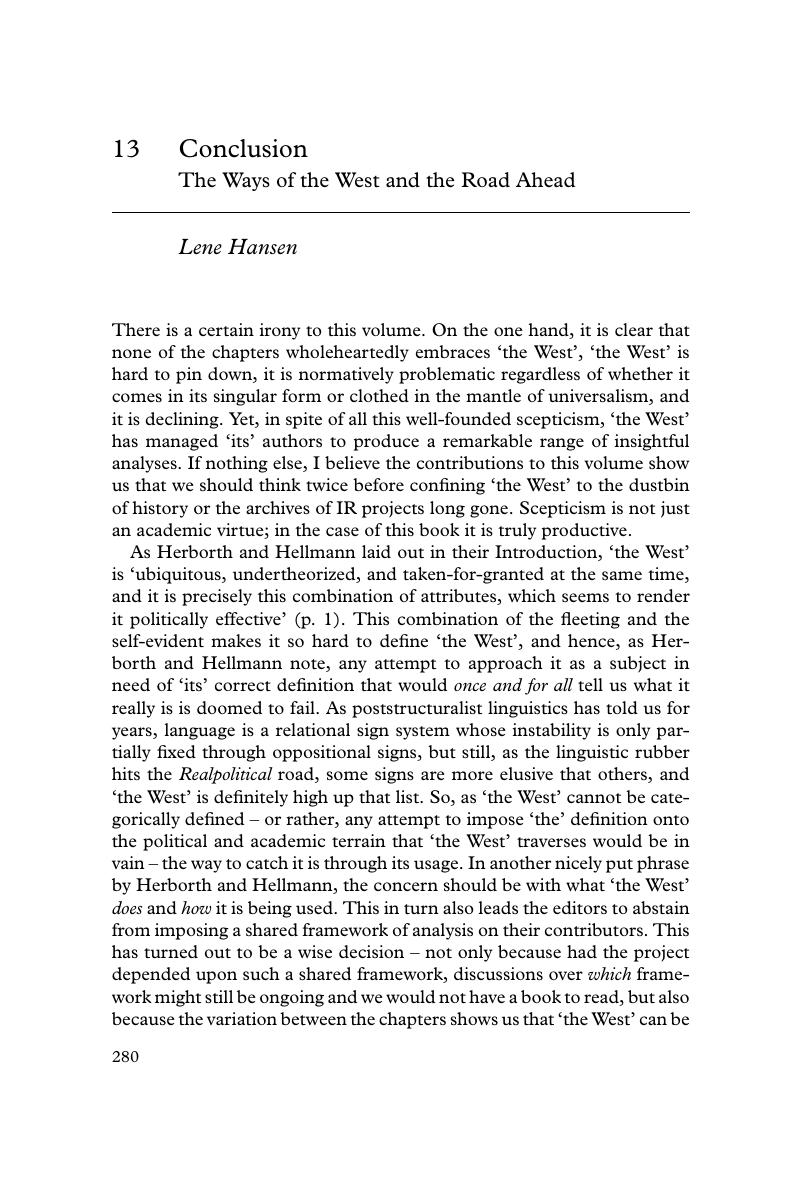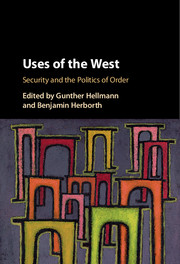Book contents
- Uses of the West
- Uses of the West
- Copyright page
- Contents
- Figures
- Tables
- Notes on Contributors
- 1 Introduction
- Part I Theorizing the West
- Part II The West in Use
- Part III Transformations of the Western Institutional Order
- 11 Defending ‘the West’?
- 12 How the ‘End of the Cold War’ Ended
- 13 Conclusion
- Index
- References
13 - Conclusion
The Ways of the West and the Road Ahead
from Part III - Transformations of the Western Institutional Order
Published online by Cambridge University Press: 20 January 2017
- Uses of the West
- Uses of the West
- Copyright page
- Contents
- Figures
- Tables
- Notes on Contributors
- 1 Introduction
- Part I Theorizing the West
- Part II The West in Use
- Part III Transformations of the Western Institutional Order
- 11 Defending ‘the West’?
- 12 How the ‘End of the Cold War’ Ended
- 13 Conclusion
- Index
- References
Summary

- Type
- Chapter
- Information
- Uses of 'the West'Security and the Politics of Order, pp. 280 - 300Publisher: Cambridge University PressPrint publication year: 2016



